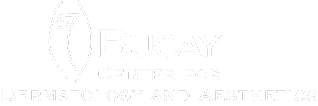Collagen 101: The production, destruction, and remodeling of your skin’s support
Our skin is constantly changing throughout life, from the fragility of a newborn to the weathered and wrinkled look of old age. Although nothing will stop the progression of time, modern medicine has made great strides in understanding and minimizing the aging process. The skin is an infinitely complex organ, affected by both internal and external factors. It is simply not possible to identify a single cause of aging, but there are a few key elements warranting special attention. One of them is collagen. You probably know what it is, but how much do you know about what it does, and how you can keep it healthy?
The role of collagen
Approximately 25 to 35 percent of the protein in your body is collagen. It is an essential component of skin, muscles, bones, and connective tissues throughout your body. In the skin, collagen lends strength, elasticity, and water resistance. The fibers form a network that provides structure for the skin. It increases the retention of other components such as hyaluronic acid (moisturizes and volumizes) and elastin (essential for elasticity). A healthy network of plentiful collagen results in soft, supple, plump, youthful skin.
Marks of time
Sun damage, injury, and many other factors can damage existing collagen and inhibit the development of new collagen. We can greatly slow the signs of aging with good skin care and sun avoidance. However, collagen production also decreases with age, which, unfortunately, is unavoidable. The loss of collagen reduces the skin thickness, and its ability to maintain moisture. Over time, it becomes loose and stretched out of shape, much like a well-worn garment after the fibers begin deteriorating.
Stimulating collagen production
Fortunately, there are many ways to encourage the formation of new collagen for smooth, firm skin. Dr. Vivian Bucay is a certified dermatologist, who is well known for her comprehensive approach to skin care, focusing on both health and beauty. She does not recommend a specific therapy for everyone, because each patient is unique. After a comprehensive evaluation, she may recommend one or several of the following:
- Topical treatments – Formulas containing ingredients such as peptides and growth compounds.
- Resurfacing – Treatments such as Fraxel laser therapy encourage collagen production as well as stimulating cell turnover at the surface level.
- Sculptra – This is a unique option because it is what is known as a biostimulator. Sculptra stimulates a process of collagen growth for gradual improvement, which takes place over several months.
- Skin tightening – Ulthera and Pellevé are innovative, non-invasive alternatives to surgical lifts. They utilize ultrasound or radio-frequency energy to stimulate the production of new collagen, as well as tightening existing collagen fibers.
We believe that education is one of the most important services we provide at Bucay Center for Dermatology and Aesthetics. We will work with you to achieve optimal skin health and beauty, as well as arming you with the knowledge to preserve those results. Call us at 210.692.3000 and schedule a consultation today.
Related Articles
San Antonio Collagen Production – Collagen 101: The production, destruction, and remodeling of your skin’s support
Pellevé San Antonio – What to expect from Pellevé treatment in San Antonio<
Pelleve in San Antonio – The Seven Wonders of Pelleve in San Antonio
San Antonio Radio Frequency Skin Tightening – The beauty of modern science: Radio frequency skin tightening in San Antonio
